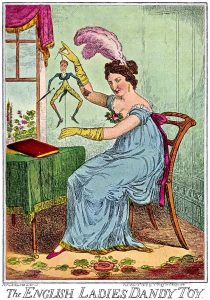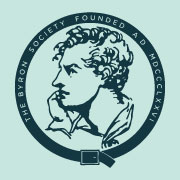By Peter Gallagher, part of our Why isn’t Don Juan Read More series.
3rd June 2019
If there were such a competition, I would vote for Don Juan as the greatest comic poem in English. But some distinguished critics consider Byron a psychological light-weight; someone who won’t face up to (either) his internal turmoil and feelings of culpability (or, alternately) his inner ‘hollowness’ by which is meant, I guess, a lack of insight. That diminishes his fame, they say.
“Be not what you seem, but always what you see”
I referred, last time, to Mathew Arnold, who esteemed Byron but who agreed with a remark of Goethe (not made about Don Juan, however): “the moment he begins to reflect; he is a child…”
A century after Arnold wrote this in the preface to his edition of Byron, Philip Martin tore into Byron on the same grounds:
“The most awkward and persistent worry that confronts [Byron’s] readers is that which grows out of the recognition that his being seduced by the attractions of a particular role (be it that of Childe Harold or Don Juan) is of such a nature that it impedes the manifestation of a controlling self-awareness in the poetry. The creation of a figure of the poet, an image of a man behind the verse, is apparently his primary concern, and where he stands in relation to this fiction, and in relation to the performance which created it, is frequently obscure or ambiguous. It ought to be said here that this is as true of Don Juan as it is of Childe Harold.” (From the Introduction to “Byron: A Poet before his Public“, CUP, 1982)
I can see what troubles these critics. The primary character in the poem and the source of most of the comedy is “Byron”. That is; Byron performing in the role of himself. Yet he is unreliable — even evasive, in a genial way — in Don Juan when it comes to “Byron’s” beliefs and self-assessment. It appears to be a deliberate strategy. So, should we take him seriously?
I suppose it was Shakespeare who taught us to expect the dramatist to show a “controlling self-awareness” in his fools’ humor: at least in the later plays (Twelfth Night, Lear, All’s Well…), when Robert Arminfilled that role in place of the more clownish Will Kempe.
But I question whether we always expect to find a “controlling self-awareness” in the greatest comic writing. The character of the ‘wise fool’ is not the only way to frame a comic performance, and; it’s probably not the most sustainable framing, either. It can become a bit tiresome and never owns center stage for long in Shakespeare’s tragedies. In his later comedies, where the humor is sustained, the “controlling intelligence” is relating a conventional fable that’s not nearly as wide-ranging or experimental as Don Juan.
Then, consider some great contemporary comedians who have built a sustained characterisation that — like the role of “Byron” in Don Juan — carries their name (brand). Do we expect to find the self-awareness of, say Jerry Seinfeld or Ricky Gervaise, embedded in their performances? Or do we value their often-shallow, cruel, inadequate, comic characters as great entertainment and sometimes thought-provoking, despite showing us little of the “image of the man” who crafted the character? Does this mean we value the art of their comedy less?
I say: “not at all!”. Some great contemporary comics, such as John Cleese, have gone out of their way to describe and even examine their ‘controlling self-awareness’. But not as part of their performance. Cleese, especially, has stepped beyond the proscenium many times. Perhaps, like Byron (witness the last stanza of the recitation below), he came to regret it.
Then, the ‘mobile’ Byron isn’t perpetually comic in Don Juan, either. He comes closest to being sincere when he’s being abstract (as Philip Martin notes, elsewhere).
“I’m serious; so are all men upon paper”
One of Byron’s comedic methods in Don Juan — there are several others — is to hint at echoes of his own well-publicised experiences and “misdeeds” as suggested by Juan’s narrative. He sometimes hints, too, at a sense of grief, or guilt or resignation. Then he ironically excuses himself, or; promises to reform, or: changes the subject, or; uses his reflection to skewer a target (e.g. Wellington) whose deeds, he says, are blacker.
Yet these hints of internal conflicts that his critics say he fails to face, might as well be fictions, too, like Juan’s adventures. They can’t be taken seriously (not very seriously) because they are almost always the set-up for a gag. They are a means of connecting with his audience across the proscenium of his — somewhat fictional — notoriety because his sins are, in reality, sins most adults can own up to. Or would like to.
[ezcol_1half]Robert Cruikshank’s cartoon of a dandy as a mobile toy for ladies
 [/ezcol_1half] [ezcol_1half_end]
[/ezcol_1half] [ezcol_1half_end]
For example, here in Canto X, he pretends he must pass-over the details of Juan’s “dissipation” as the Empress Catherine’s lover because it recalls to him his own youthful behavior — plausibly, it does — whose memory clings to him in his “equinoctal” years (he’s 33!) like the kiss of a lover or the kelp that drowns a swimmer. It’s comic exaggeration, feigned regret, gothic imagery and bravura verse that tells us precisely nothing of his personal ledgers on the account of his ‘excess’.
[/ezcol_1half_end]
And this same state we won’t describe: we would
Perhaps from hearsay, or from recollection;
But getting nigh grim Dante’s “obscure wood,”
That horrid equinox, that hateful section
Of human years, that half-way house, that rude
Hut, whence wise travellers drive with circumspection
Life’s sad post-horses o’er the dreary frontier
Of age, and looking back to youth, give one tear; —
I won’t describe, — that is, if I can help
Description; and I won’t reflect, — that is,
If I can stave off thought, which — as a whelp
Clings to its teat — sticks to me through the abyss
Of this odd labyrinth; or as the kelp
Holds by the rock; or as a lover’s kiss
Drains its first draught of lips: — but, as I said,
I won’t philosophise, and will be read.
(Canto X, 27-28)
Here’s a second example that is less about lust than loss: the brilliant passage in Canto I from Stanza 212 (“But now at thirty years my hair is grey…”) to Stanza 220 (“…So thank your stars that matters are no worse, / And read your Bible, sir, and mind your purse.”’).
This is a mixture of hyperbolic regret for age (good grief! he’s not yet 30!) and love…
… I
Have spent my life, both interest and principal,
And deem not, what I deem’d, my soul invincible.
No more — no more — Oh! never more on me
The freshness of the heart can fall like dew…
…Clever, but orthodox complaints about the futility of striving…
For this men write, speak, preach, and heroes kill,
And bards burn what they call their “midnight taper,”
To have, when the original is dust,
A name, a wretched picture, and worse bust.
…And a startling, wonderfully comic, image of empty promises of immortality:
What are the hopes of man? Old Egypt’s King
Cheops erected the first pyramid
And largest, thinking it was just the thing
To keep his memory whole, and mummy hid;
But somebody or other rummaging,
Burglariously broke his coffin’s lid:
Let not a monument give you or me hopes,
Since not a pinch of dust remains of Cheops.
How much of this is Byron seriously reflecting on age (grey hair), boredom (spent interest), and exhaustion (spent principal) with his promiscuity (“spending” in another sense) in Venice? Plausibly some, at least: the confessional tone makes it seem Byron really is evaluating what he has “lost” (“The freshness of the heart can fall like dew…”) and what he has gained in return (“And in thy stead I’ve got a deal of judgment, /Though heaven knows how it ever found a lodgment”).
But the dramatic declaration that follows this near sincerity is there only to line-up a joke:
My days of love are over; me no more
The charms of maid, wife, and still less of widow,
Can make the fool of which they made before…
… And here’s the punch-line: a resolution to replace one “deadly sin” with another that is more “age-appropriate”:
So for a good old-gentlemanly vice,
I think I must take up with avarice.
And yet… Byron is only half joking, here, too. The references to his growing love of money — reflected in his determined, unattractive penny-pinching and privileged reneging on debts (despite a significant improvement in his actual wealth after the death of his Mother-in-law in 1822) — are peppered throughout the poem. They culminate in a half-shocking, Byronically clever defence of “miserliness” — or maybe capitalism; bankers certainly — at the start of Canto XII:
O Gold! Why call we misers miserable?
Theirs is the pleasure that can never pall;… (XII, 3)
Next…
In the next post, I’ll wrap up this question of Byron’s “mobility” with a suggestion about why he chose to do it: or maybe needed to do it. I’d also like to look briefly at Byron’s comic methods and how his extraordinary art as a versifier allows him keep Don Juan galloping along even when he’s being grumpy.
For more entries in this Series, go to Why isn’t Don Juan Read More?
Peter Gallagher (@madbaddangerous) blogs at https://madbaddangerous.com. He plans to publish an annotated and narrated version of Cantos I and II of Don Juan later this year in celebration of the bi-Centenary of the first publication of greatest comic poem in English.

